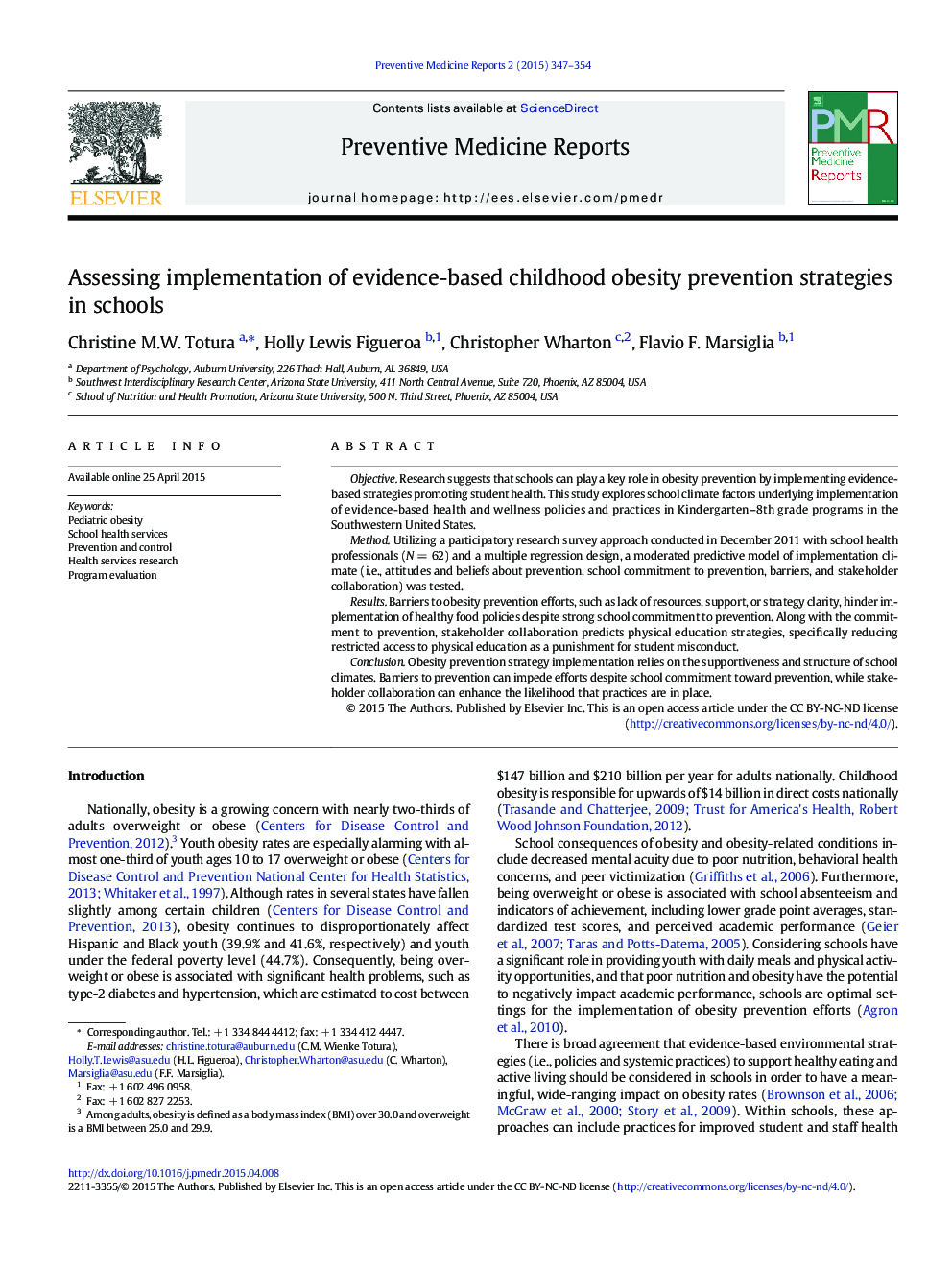| Article ID | Journal | Published Year | Pages | File Type |
|---|---|---|---|---|
| 4202442 | Preventive Medicine Reports | 2015 | 8 Pages |
•This study explored school implementation climate for obesity prevention.•Barriers are associated with lower implementation of healthy food policies.•Commitment and collaboration predict less restricted access to physical education.•School prevention beliefs predict lower student access to physical education.•Obesity prevention implementation depends on the supportiveness of school climates.
ObjectiveResearch suggests that schools can play a key role in obesity prevention by implementing evidence-based strategies promoting student health. This study explores school climate factors underlying implementation of evidence-based health and wellness policies and practices in Kindergarten–8th grade programs in the Southwestern United States.MethodUtilizing a participatory research survey approach conducted in December 2011 with school health professionals (N = 62) and a multiple regression design, a moderated predictive model of implementation climate (i.e., attitudes and beliefs about prevention, school commitment to prevention, barriers, and stakeholder collaboration) was tested.ResultsBarriers to obesity prevention efforts, such as lack of resources, support, or strategy clarity, hinder implementation of healthy food policies despite strong school commitment to prevention. Along with the commitment to prevention, stakeholder collaboration predicts physical education strategies, specifically reducing restricted access to physical education as a punishment for student misconduct.ConclusionObesity prevention strategy implementation relies on the supportiveness and structure of school climates. Barriers to prevention can impede efforts despite school commitment toward prevention, while stakeholder collaboration can enhance the likelihood that practices are in place.
